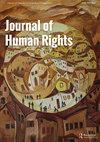The COVID-19 pandemic and authoritarian consolidation in North Africa
IF 1.6
2区 社会学
Q3 INTERNATIONAL RELATIONS
引用次数: 10
Abstract
Abstract Since the Arab Spring, North Africa has witnessed increased levels of authoritarianism and a general decline in human rights as authoritarian regimes have consolidated power. During the COVID-19 pandemic, regimes across the region have instituted greater restrictions on public gatherings in order to curb the spread of the virus, and some have used the pandemic to enhance powers and crush dissent. This article will investigate if these two phenomena are connected. Is the expansion of emergency powers and surveillance designed to primarily support public health, or is this emergency legislation designed to provide greater authoritarian power for regimes under the guise of fighting the pandemic? We find that considerable actions taken by these regimes were not solely designed to support public health, and instead have been exploited to curb dissent. The potential detrimental impact this expansion could have on human rights across the region could be severe. We compare emergency legislation in Morocco and Egypt since the beginning of the COVID-19 pandemic. Our analysis provides systematic insight into how authoritarian regimes respond to public health crises and details how these crises can be used by regimes facing contentious political action to quell dissent.新冠肺炎大流行与北非的威权巩固
摘要自阿拉伯之春以来,随着威权政权巩固权力,北非的威权主义程度不断上升,人权普遍下降。在新冠肺炎大流行期间,该地区的政权对公众集会实施了更大的限制,以遏制病毒的传播,一些政权利用大流行来加强权力和压制异见人士。本文将探讨这两种现象是否有关联。扩大紧急权力和监督主要是为了支持公共卫生,还是这项紧急立法是为了在抗击疫情的幌子下为政权提供更大的威权?我们发现,这些政权采取的大量行动不仅是为了支持公共卫生,反而被用来遏制异见。这种扩张可能对整个地区的人权产生严重的潜在不利影响。我们比较了自新冠肺炎大流行开始以来摩洛哥和埃及的紧急立法。我们的分析系统地了解了独裁政权如何应对公共卫生危机,并详细说明了面临有争议的政治行动的政权如何利用这些危机来平息异议。
本文章由计算机程序翻译,如有差异,请以英文原文为准。
求助全文
约1分钟内获得全文
求助全文

 求助内容:
求助内容: 应助结果提醒方式:
应助结果提醒方式:


